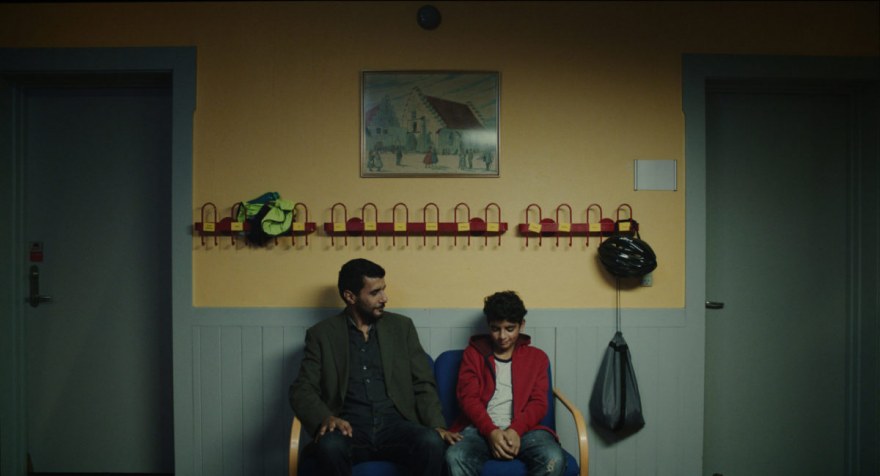Tea time with Abu Adnan
An interview with Sylvia Le Fanu, director of Abu Adnan
Are Adnan and his son based on people you’ve met? Were you inspired by real-life stories?
In fact, the story is originally based on my own experience with foreign parents in Denmark. I know what it is like to feel ashamed that my parents were not like the other parents, and I can only imagine how difficult it must have been for them sometimes to “lead the way” when they were having trouble with the new language and customs. As soon as Mads (my co-writer) and I began to develop the idea and started our research, it became clear how many foreigners recognised this theme. Sayid (Adnan’s Father) and Adnan are therefore based on many people’s stories. As far as the specific relationship between Sayid and Adnan is concerned, the strong bond between the actors, Salim and Jihad, who are in fact father and son in real life, is what I think gave it its authenticity.
Many films about refugees making a life for themselves in another country tend to focus on the logistical hurdles or the hostility some of them face. What motivated you to rather tell the story of a relationship between father and son?
I didn’t want to make a film about “them” and “us”. Instead I wanted to look at how moving to a new country with all it entails affects the internal family dynamics in that the natural authority of a parent is challenged because of language difficulties and cultural differences. The power structure is turned around as it is often the children who are the fastest to assimilate. I thought it was important to investigate this theme without pointing fingers at anyone: one of the main points for me with this story is indeed that even though everyone is trying to do their best (including the Danish institutions represented by the school teacher), this meeting between cultures is very challenging because of misunderstandings and (albeit subconscious) preconceived ideas of people who are different from us.
Can you tell us about casting Adnan and his father?
From the beginning, I knew I wanted to find “real people” to play the roles of Sayid and Adnan since I believed this to be the best way for me (a relatively young woman from the west) to tell this story with authenticity and authority. After meeting up to twenty candidates, I was very lucky to meet Salim and Jihad through a friend of a friend, who had been helping me with the casting. She knew that Jihad (the son) had aspirations to become an actor and for his sake, Salim (the father who himself is a painter), was persuaded to give it a shot as well! Immediately I knew I wanted them and after a short improv session, I offered them the parts.
What subjects are you keen to explore in future projects?
At the moment, I am still completely engaged in looking at cultural meetings (and differences) on a very personal level such as in Abu Adnan and finding out what this means for our feeling of identity and belonging and how the lack of it can lead to alienation – and loneliness. For me, the entity of the family conceals the most interesting (and complex!) dynamics to explore and try to understand in relation to this theme – or almost any other theme for that matter.
What sort of freedom would you say the short format allows?
For me the short format is a learning platform, where I can explore themes and different stylistic approaches in a more essayistic and experimental form. Hence the short format is not subject to as many strict conventions as the feature and there is much greater freedom for experimentation. The short length also focuses on the storytelling and lets us dwell on the magic of the moment instead of intellectualizing stories in structure and plot.
Abu Adnan is being shown in International Competition I10.








